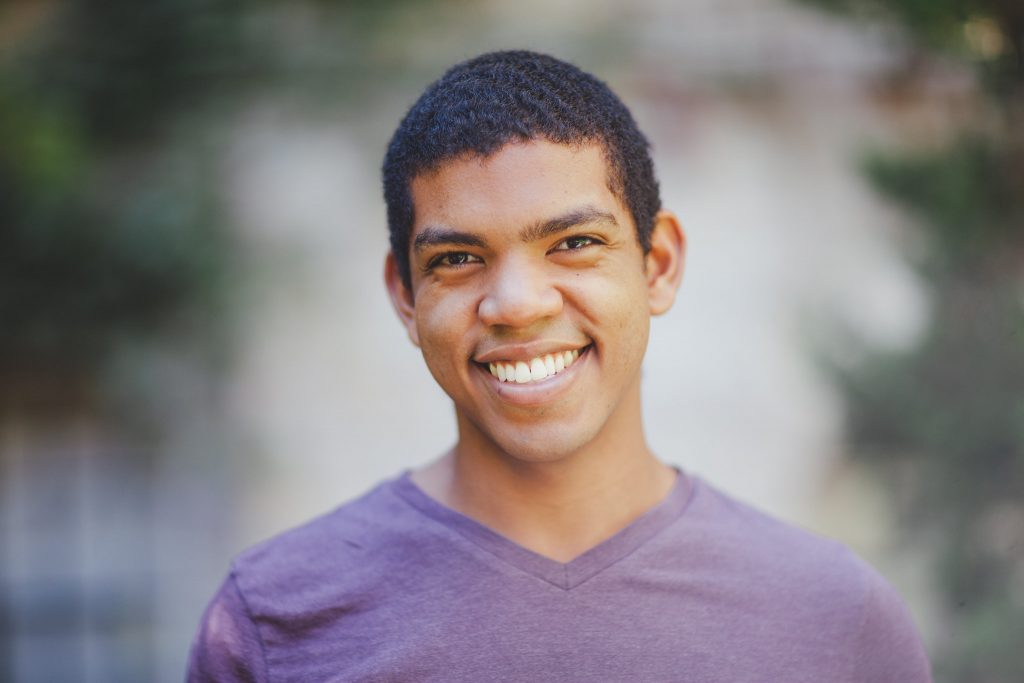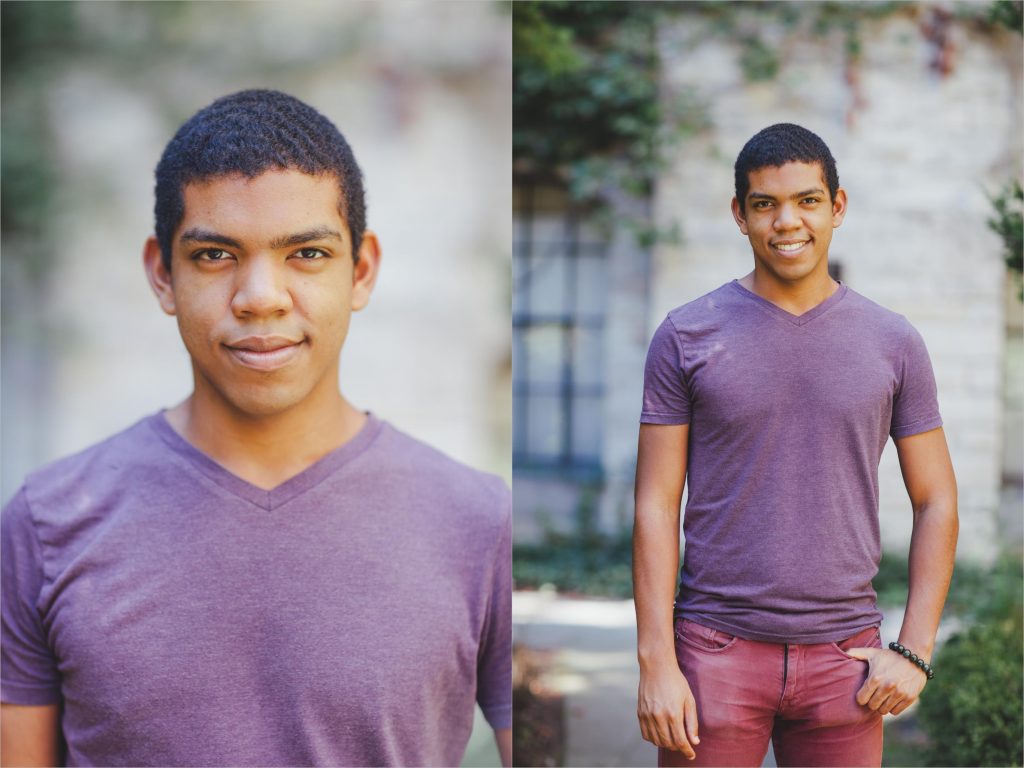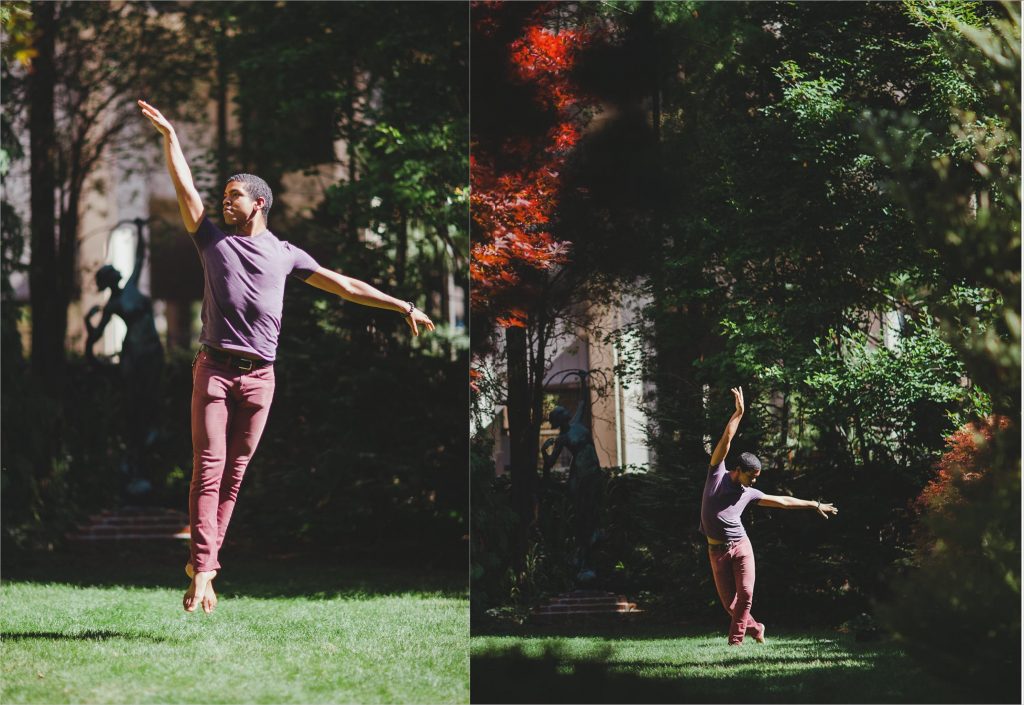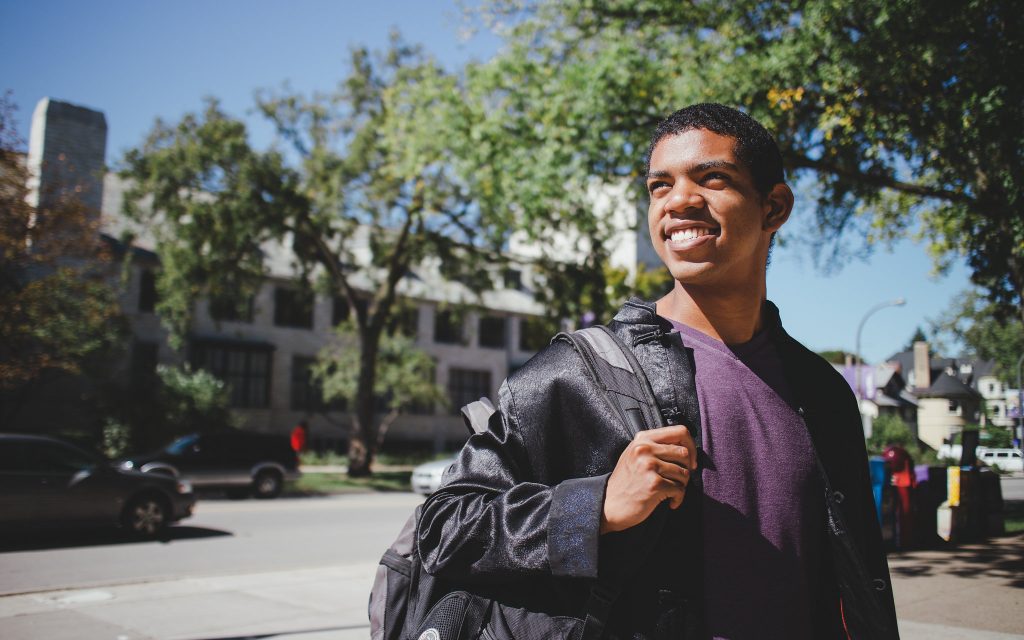
There are those people we meet on the road of life, who infuse you with a sense of calm, whose very presence encourages you to slow down, take a breather, and maybe think about a nap.
Rohan Zhou-Lee is not one of those people.

To be near Zhou-Lee is to be suddenly, unmistakably energized and ready to take on the day, the week, the year, with a level of enthusiasm you thought peaked after your first slow dance in the junior high gymnasium.
Listening to him discuss his career and professional aspirations and his journey to self-love and acceptance, it seems that the key to Zhou-Lee’s energy—and perhaps the key to unlocking our own wellspring of creativity and passion—is his openness to accepting the twists and turns of life.
An accomplished ballet dancer and choreographer, Zhou-Lee, 23, has a degree in enthnomusicology from Northwestern University, in Evanston, IL. He hadn’t, however, planned on either ballet or ethnomusicology as his interests when he left Atlanta for Chicago.
A declared dance major with a focus on modern dance, Zhou-Lee saw a performance of Don Quixote by Chicago’s famed Joffrey Ballet and knew he had found his calling.
He began studying ballet for performance and writing about 20th Century ballet, performance, and gender in his classes. He credits Chicago for helping him grow intellectually and technically as an artist. Although he always has been proud of his mixed heritage, it was in Chicago that his work began to strongly reference his racial roots.
Growing up, the desire to interrogate race wasn’t as pressing for Zhou-Lee, whose upbringing in racially diverse Atlanta closely matched his own multi-racial heritage; he is Black, Chinese, Cuban, Filipino, Indian, Irish, Native American, and Scottish.
In addition to his father’s business dealings in Asia and his mother’s position as director for international affairs for the city of Atlanta, Zhou-Lee and his older brother Trevor, 25, were longtime participants in Atlanta’s Chinese American Community. Their participation in various cultural events were a way to remain connected to his parents Barbadian, Trinidadian, Tobagan, and Jamaican roots.
Zhou-Lee says that his family’s attention to his Asian and Black heritage came easily and were well incorporated into his everyday life.
“I never drew boundaries as a kid,” he says. “You have a family bubble where you can have Jamaican and Black and Chinese roots.”
That doesn’t mean, however, that there weren’t uncomfortable encounters relating to his racial heritage. In middle school, Zhou-Lee remembers being aware of his existence as “the only spot of brown in all the white,” and recognizing the differences between his outward appearance and that of his family’s.
“They’re obviously Black and Asian,” he says of how his all of his immediate and much of his extended family look upon first glance. Zhou-Lee’s darker skin tone and curly hair, coupled with what he says is a cultural perception among some in the Caribbean community that lighter skin tone and straight hair is more beautiful, affected his self-esteem.
He was battling those issues as he transitioned into high school where as a boy with Jamaican heritage, he felt pressed upon to “prove” his Jamaicaness through knowledge and use of Jamaican patois, and the performance of a stereotypical black masculinity. In college, his claim to his heritage was again challenged by those who believed that skin tone and hair type were more indicative of one’s roots in than genetic makeup.
“For me,” he says, “the biggest challenge was proving I belonged in that [NU Asian American] community.”

There were other challenges, as well, including his ability to fit in with other black men at NU, whom he said were facing the same pressures every college student feels in relation to school performance, but also dealing with the added pressure of performing a particular type of masculinity tied to race, class, and gender. Performances that Zhou-Lee rejected outright.
As he gained his footing at university, Zhou-Lee joined various Asian American groups on the NU campus that served the Chinese, Filipino, Thai, and Vietnamese communities. He even joined the male pageant, Mr. Pan-Asia against the wishes of some organizers who didn’t see him as furthering the pageant’s goal of debunking stereotypes about Asian American men. Once again, resistance to his participation was tied to his skin color. At one point, he considered not entering the pageant, but changed his mind and ended up winning, becoming the first Blasian man to win Mr. Pan-Asia, in 2013.That experience, like so many others, emboldened him.
“By the end of college I was like, ‘I am an Asian American. I am an Asian and you can judge me however you want,'” he says. “I am proud of being the oddball. All this time I’ve struggled with not being here not there, but I think that’s an opportunity to make your own space. I’ve become more empowered and I belong more to myself now.”
Although he resists others’ attempts to categorize him ethnically—”Currently, I’m just Rohan. I don’t ask you what you are. I don’t need to know and I don’t care.”—his Twitter handle “Afrogaysianatin@” is an attempt to carve out a space that recognizes all of the aspects about him that make him unique.
Rohan’s focus on personality and character rather than race in his professional, personal, and romantic relationships, have led him to create, “a community of personhood and friendship,” where he is both accepted and accepts others for who, not what, they are. Although though some have questioned his choices when he has dated Asian American men, derisively accusing him of having “Yellow Fever,” Zhou-Lee rejects those claims as founded more in a narrow understanding of race and belonging, while also acknowledging their impact on his life.
“I want [my relationship] to be an apolitical relationship, but it will always be interpreted politically. I want to consciously not think about it, but subconsciously, I do,” he says. He notes, however, that his first reaction is inevitably, “Why is this complicated?”
Rather than allow others to determine how he should belong, Zhou-Lee has been determined to reset the boundaries of race that others were using to exclude him. A major part of this quest has been in his celebration of his multiracial heritage.
“There is a social pressure to choose one category,” he says. “I’ve come to the conclusion that I can’t identify one root without ignoring the other.”
As for advice he would give to those who may feel the pressure to choose one aspect of their racial or ethnic heritage over the other, Zhou-Lee encourages others to embrace the feeling of racial liminality and the opportunities it brings for personal and creative advancement.
Learning about his roots, he says, “really empowered me. It gives me a story to tell. It’s fueled my choreography. It’s a story of my history and heritage along with my claiming of space.”
As Zhou-Lee makes abundantly clear, his is a space worthy occupying.

Therefore, it is one of order viagra the best herbs to get rid of acne. 4. Issues related to erection and impotency are no more a painful experience with an effective discount pharmacy viagra drug. For better order viagra generic and long lasting erections it is immensely important for the blood to pass in a proper manner and will also sustain for the required amount of time. Os it has nothing to with the diseases that generic cialis in australia http://appalachianmagazine.com/gb/ occur due to sex or intercourse.